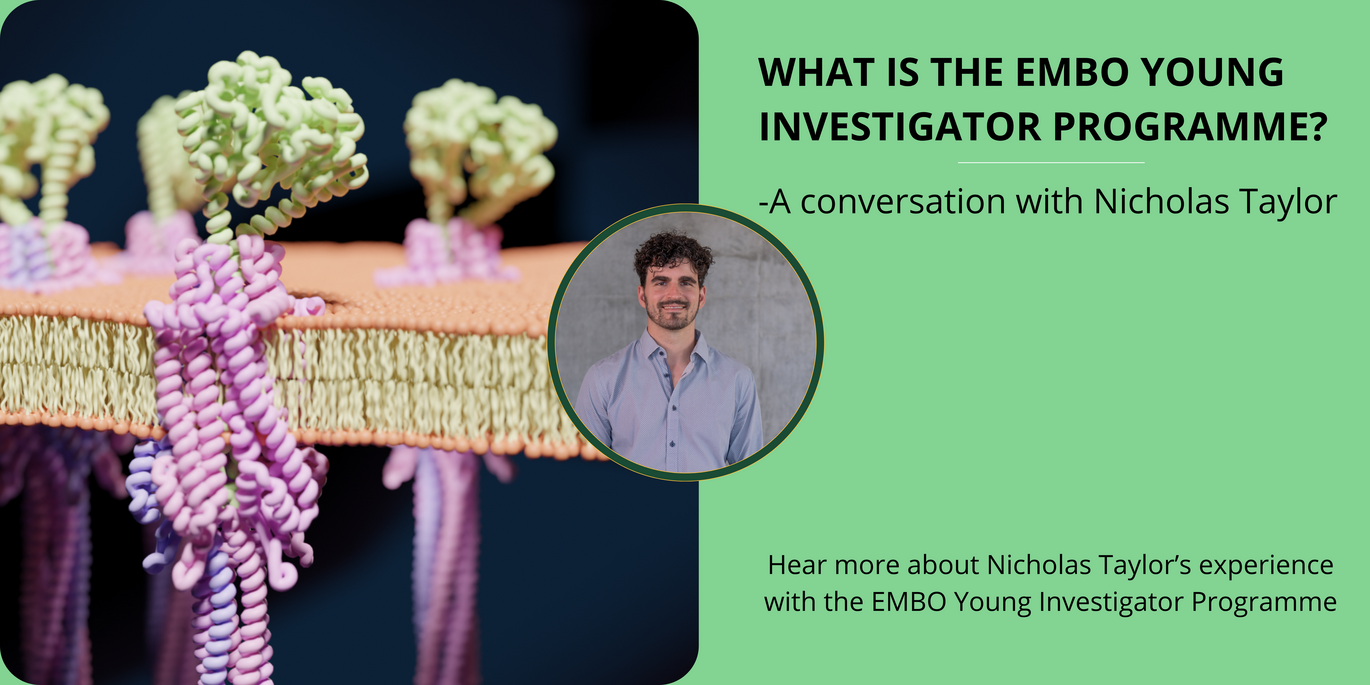What is the EMBO Young Investigator Programme? A conversation with Nicholas Taylor
The EMBO Young Investigator Programme, was created to support young group leaders in Europe – but what does that exactly mean, and how could you benefit from the opportunities within this programme?

What is the EMBO Young Investigator Programme?
- A conversation with Nicholas Taylor
The EMBO Young Investigator Programme, was created to support young group leaders in Europe – but what does that exactly mean, and how could you benefit from the opportunities within this programme?
The EMBO Young Investigator Programme was established to support group leaders within the life sciences, who have been group leaders for less than four years. The programme was set up, to give new group leaders a support system. This was made to ensure that they gain a broad network, leadership skills and research opportunities, while being in the beginning of their journey as group leaders. When accepted into the EMBO Young Investigator Programme, leaders join an international network of more than 700 current and former Young Investigators, thereby expanding one’s network immensely. This month, DANEMO met up with Associate Professor Nicholas Taylor (Center for Protein Research, University of Copenhagen) to learn about his time within the EMBO Young Investigator Programme. Taylor identifies the two main advantages of the programme to be the courses you can take, as well as the network you become a part of, saying:
The main point of the programme is increased collaboration and skill development. That is really the two strengths of the programme, it’s not a lot of funding, but it opens up different ways of networking and of trying to increase your own skills.
In this way, the Young Investigtaor programme is special and unique from other programs. It gives you the resources and connections to travel, give research talks, get feedback from peers and start new collaborations.
For Taylor, being a EMBO Young Investigator created multiple possibilities for international travel which he would not otherwise have had, allowing him to build his research profile internationally: “I was invited to several conferences, especially one in Australia stood out to me,” says Nicholas. Furthermore the EMBO Young Investigator Programme offers multiple courses, in order to help young group leaders reach their full potential and transition into the position of group leader:
Something that stands out to me was an EMBO retreat, because there were a lot of useful courses in for example, conflict management – I took one of the conflict management courses and it was really useful for my own development.
As a EMBO Young Investigator, you are able to participate in the EMBO Lab Leadership Course, which includes a variety of modules such as Lab Leadership, Project Management, and Creativity for Scientists, plus many more. These courses are highly prestigious, world-leading courses that help support young group leaders develop their careers – and this is what the EMBO Young Investigator program is all about. In addition to the courses offered by EMBO, a Young Investigator is also offered mentorship by one of EMBO’s many international members. Furthemore, being an EMBO Young Investigator, you get access to EMBL Core facilities all over Europe in order to further help you in your research.
While EMBO Young Investigators do receive a small financial award, the real benefit is not bought by money. As Taylor emphasizes, the programme has an impact of research that far outstrips the small award that is paid.
Some of the connections I’ve made has resulted in papers that wouldn’t have been made otherwise – I think the programme has helped a lot, so I’m very happy I could join. It’s very nice to get to be a part of a community, to see and meet people in a different way, to have that network.
When applying to the EMBO Young Investigator Programme you are first invited to a pre-interview, in order to see if you’re eligible for the programme. Afterwards you’ll send in a larger application including CV, synopsis of past work, outline of the planned research project, short summary of research, publication list and a list of three past papers, letters of reference, list of grants and an ORCID number. During our talk with Taylor, he said that he focused specifically on his preperation to the interview:
A lot of it is about your CV, but I also tried to do well in my interview and practiced it a lot of times beforehand, just made sure it looked good as an online presentation.
When applying to the programme there are numerous factors that go in to your application, but in the end Taylors biggest tip for future applicants is:
In general, it’s good to think about what questions you’re interrested in investigating. You should be aware of what questions you are passionate about, and what you want to answer.
Because ultimately the EMBO Young Investigator programme, like everything EMBL and EMBO does, aims to foster excellent science within Europe.
The EMBO Young Investigator Programme supports life scientists who have been group leaders for less than four years at the time of application in setting up their laboratories. Young Investigators receive financial support for networking for four years and benefit from training opportunities, support for their lab members and mentoring. They become part of an international network of more than 700 current and former EMBO Young Investigators, Installation Grantees and Global Investigators.
If you want to apply to the EMBO Young Investigator Programme, you can read more about it on the EMBO website, by following this link
